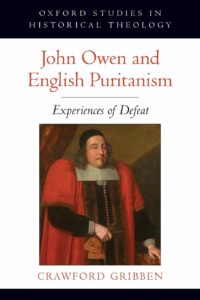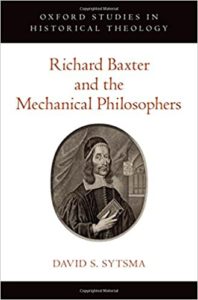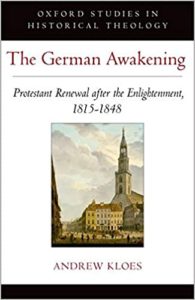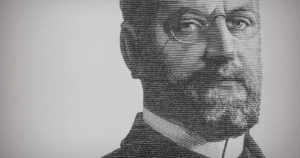
Author’s Corner: Oxford Studies in Historical Theology
Each week on Credo we welcome you to join us in the Author’s Corner where we will meet a set of authors whose recent books deserve your attention and might even help you grow in your knowledge of theology, history, philosophy, and the scriptures. We hope the Author’s Corner can keep you up-to-date on the most important books published today and where you can find them.
On today’s Author’s Corner, we present you with a selection from the Oxford Studies in Historical Theology, edited by Richard A. Muller (Oxford University Press).
Oxford University Press established in 1994 a new series of original monographs devoted to the history of Christian thought from its early and medieval beginnings to its later development in the modern period. The underlying assumption held from the first was that Christian ideas from the past can best be understood when scholars present them in their proper historical and cultural context. For 20 years the distinguished authors in this series have treated a wide variety of intellectual problems from the Christian past and, by so doing, have redefined the discipline of historical theology for the foreseeable future.
J ohn Owen and English Puritanism: Experiences of Defeat (OUP, 2017) by Crawford Gribben
ohn Owen and English Puritanism: Experiences of Defeat (OUP, 2017) by Crawford Gribben
John Owen was a leading theologian in seventeenth-century England. Closely associated with the regicide and revolution, he befriended Oliver Cromwell, was appointed vice-chancellor of the University of Oxford, and became the premier religious statesman of the Interregnum. The restoration of the monarchy pushed Owen into dissent, criminalizing his religious practice and inspiring his writings in defense of high Calvinism and religious toleration. Owen transcended his many experiences of defeat, and his claims to quietism were frequently undermined by rumors of his involvement in anti-government conspiracies.
Crawford Gribben’s biography documents Owen’s importance as a controversial and adaptable theologian deeply involved with his social, political, and religious environments. Fiercely intellectual and extraordinarily learned, Owen wrote millions of words in works of theology and exegesis. Far from personifying the Reformed tradition, however, Owen helped to undermine it, offering an individualist account of Christian faith that downplayed the significance of the church and means of grace. In doing so, Owen’s work contributed to the formation of the new religious movement known as evangelicalism, where his influence can still be seen today.
R ichard Baxter and the Mechanical Philosophers (OUP, 2017) by David S. Sytsma
ichard Baxter and the Mechanical Philosophers (OUP, 2017) by David S. Sytsma
Richard Baxter, one of the most famous Puritans of the seventeenth century, is generally known as a writer of practical and devotional literature. But he also excelled in the knowledge of medieval and early modern scholastic theology, and was conversant with a wide variety of seventeenth-century philosophies. Baxter was among the early English polemicists who wrote against the mechanical philosophy of René Descartes and Pierre Gassendi in the years immediately following the establishment of the Royal Society. At the same time, he was friends with Robert Boyle and Matthew Hale, corresponded with Joseph Glanvill, and engaged in philosophical controversy with Henry More. In this book, David Sytsma presents a chronological and thematic account of Baxter’s relation to the people and concepts involved in the rise of mechanical philosophy in late-seventeenth-century England.
Drawing on largely unexamined works, including Baxter’s Methodus Theologiae Christianae (1681) and manuscript treatises and correspondence, Sytsma discusses Baxter’s response to mechanical philosophers on the nature of substance, laws of motion, the soul, and ethics. Analysis of these topics is framed by a consideration of the growth of Christian Epicureanism in England, Baxter’s overall approach to reason and philosophy, and his attempt to understand creation as an analogical reflection of God’s power, wisdom, and goodness, or vestigia Trinitatis. Baxter’s views on reason, analogical knowledge of God, and vestigia Trinitatis draw on medieval precedents and directly inform a largely hostile, though partially accommodating, response to mechanical philosophy.
T he German Awakening: Protestant Renewal after the Enlightenment, 1815-1848 (OUP, 2019) by Andrew Kloes
he German Awakening: Protestant Renewal after the Enlightenment, 1815-1848 (OUP, 2019) by Andrew Kloes
Historians of modern German culture and church history refer to “the Awakening movement” (die Erweckungsbewegung) to describe a period in the history of German Protestantism between the end of the Napoleonic Wars in 1815 and the Revolution of 1848. “The Awakening” was the last major nationwide Protestant reform and revival movement to occur in Germany. This book analyzes numerous primary sources from the era of the Awakening and synthesizes the current state of German scholarship for an English-speaking audience. It examines the Awakening as a product of the larger social changes that were re-shaping German society during the early decades of the nineteenth century. Theologically, Awakened Protestants were traditionalists. They affirmed religious doctrines that orthodox Protestants had professed since the confessional statements of the Reformation-era. Awakened Protestants rejected the changes that Enlightenment thought had introduced into Protestant theology and preaching since the mid-eighteenth century. However, Awakened Protestants were also themselves distinctly modern. Their efforts to spread their religious beliefs were successful because of the new political freedoms and economic opportunities that the Enlightenment had introduced. These social conditions gave German Protestants new means and abilities to pursue their religious goals. Awakened Protestants were leaders in the German churches and in the universities. They used their influence to found many voluntary organizations for evangelism, in Germany and abroad. They also established many institutions to ameliorate the living conditions of those in poverty. Adapting Protestantism to modern society in these ways was the most original and innovative aspect of the Awakening movement.

